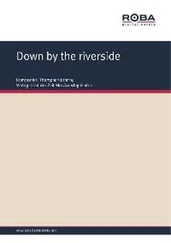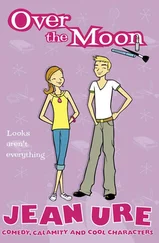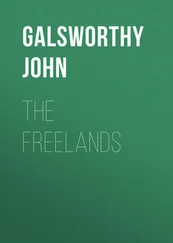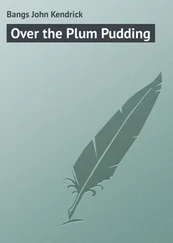John Galsworthy - Over the River
Здесь есть возможность читать онлайн «John Galsworthy - Over the River» весь текст электронной книги совершенно бесплатно (целиком полную версию без сокращений). В некоторых случаях можно слушать аудио, скачать через торрент в формате fb2 и присутствует краткое содержание. Жанр: Классическая проза, на английском языке. Описание произведения, (предисловие) а так же отзывы посетителей доступны на портале библиотеки ЛибКат.
- Название:Over the River
- Автор:
- Жанр:
- Год:неизвестен
- ISBN:нет данных
- Рейтинг книги:3 / 5. Голосов: 1
-
Избранное:Добавить в избранное
- Отзывы:
-
Ваша оценка:
- 60
- 1
- 2
- 3
- 4
- 5
Over the River: краткое содержание, описание и аннотация
Предлагаем к чтению аннотацию, описание, краткое содержание или предисловие (зависит от того, что написал сам автор книги «Over the River»). Если вы не нашли необходимую информацию о книге — напишите в комментариях, мы постараемся отыскать её.
Over the River — читать онлайн бесплатно полную книгу (весь текст) целиком
Ниже представлен текст книги, разбитый по страницам. Система сохранения места последней прочитанной страницы, позволяет с удобством читать онлайн бесплатно книгу «Over the River», без необходимости каждый раз заново искать на чём Вы остановились. Поставьте закладку, и сможете в любой момент перейти на страницу, на которой закончили чтение.
Интервал:
Закладка:
“Well, Em?”
“Dinny will have two boys and a girl.”
“Deuce she will! That’s counting her chickens rather fast.”
“Somebody must. Give me a nice kiss.”
Sir Lawrence stooped over and complied.
“When she marries,” said Lady Mont, shutting her eyes, “she’ll only be half there for a long time.”
“Better half there at the beginning than not at all at the end. But what makes you think she’ll take him?”
“My bones. We don’t like being left out when it comes to the point, Lawrence.”
“Continuation of the species. H’m!”
“If he’d get into a scrape, or break his leg.”
“Better give him a hint.”
“His liver’s sound.”
“How do you know that?”
“The whites of his eyes are blue. Those browny men often have livers.”
Sir Lawrence stood up.
“My trouble,” he said, “is to see Dinny sufficiently interested in herself again to get married. After all, it IS a personal activity.”
“Harridge’s for beds,” murmured Lady Mont.
Sir Lawrence’s eyebrow rose. Em was inexhaustible!
CHAPTER 37
She whose abstinence from interest in herself was interesting so many people, received three letters on Wednesday morning. That which she opened first said:
“DINNY DARLING,—
“I tried to pay, but Tony would have none of it, and went off like a rocket; so I’m a wholly unattached female again. If you hear any news of him, let me have it.
“Dornford gets more ‘interesting-looking’ every day. We only talk of you, and he’s raising my salary to three hundred as compensation.
“Love to you and all,
“CLARE.”
That which she opened second said:
“MY DEAR DINNY,—
“I’m going to stick it here. The mares arrive on Monday. I had Muskham down yesterday, and he was jolly decent, didn’t say a word about the case. I’m trying to take up birds. There is one thing you could do for me if you would—find out who paid those costs. It’s badly on my mind.
“Ever so many thanks for always being so nice to me.
“Yours ever,
“TONY CROOM.”
That which she read last said:
“DINNY, MY DEAR,—
“Nothing doing. He either didn’t, or else played ‘possum,’ but if so it was very good ‘possum.’ All the same, I wouldn’t put it past him that it WAS ‘possum.’ If you really set store by knowing, I think I should ask him point-blank. I don’t believe he would tell YOU a lie, even ‘a little one.’ As you know, I like him. In my avuncular opinion he is still on the gold standard.
“Your ever devoted
“ADRIAN.”
So! She felt a vague irritation. And this feeling, which she had thought momentary, she found to be recurrent. Her state of mind, indeed, like the weather, turned cold again and torpid. She wrote to Clare what Tony Croom had written of himself, and that he had not mentioned her. She wrote to Tony Croom, and neither mentioned Clare nor answered his question about the costs; she concentrated on birds—they seemed safe, and to lead nowhere. She wrote to Adrian: “I’m feeling I ought to be wound-up, only there’d be no dividend for the shareholders. It’s very cold and dull, my consolation is that little ‘Cuffs’ is beginning to ‘sit up and take real notice’ of me.”
And then, as if by arrangement with the clerk of the course at Ascot, the weather changed to ‘set warm’; and, suddenly, she wrote to Dornford. She wrote on pigs, their breeds and sties, the Government and the farmers. She ended with these words:
“We are all very worried by not knowing who had settled the costs in my sister’s case. It is so disquieting to be under an obligation to an unknown person. Could you by any means find out for us?” She debated some time how to sign herself in this her first letter to him, and finally wrote “Yours always, Dinny Charwell.”
His answer came very quickly:
“MY DEAR DINNY,—
“I was delighted to get a letter from you. To answer your last question first. I will do my best to get the lawyers to ‘come clean,’ but if they won’t tell YOU, I can’t imagine their telling me. Still, I can try. Though I fancy that if your sister or young Croom insisted they’d have to tell. Now about pigs”—there followed certain information, and a lamentation that agriculture was still not being properly tackled. “If only they would realise that all the needed pigs, poultry, and potatoes, nearly all the vegetables, much of the fruits, and much more than the present dairy produce, can really be produced at home, and by a graduated prohibition of foreign produce encourage, and indeed force, our home growers to supply the home market, we should, within ten years, have a living and profitable native agriculture once more, no rise to speak of in the cost of living, and a huge saving in our imports bill. You see how new I am to politics! Wheat and meat are the red herrings across the trail. Wheat and meat from the Dominions, and the rest (bar hot climate fruits and vegetables) home-grown, is my motto. I hope your father agrees. Clare is becoming restive, and I’m wondering if she wouldn’t be happier in a more active job than this. If I can come across a good one, I shall advise her to take it. Would you ask your mother whether I should be in the way if I came down for the last week-end this month? She was good enough to tell me to let her know any time I was coming to the constituency. I was again at Cavalcade the other night. It wears well, but I missed you. I can’t even begin to tell you how I missed you.
“Your ever faithful
“EUSTACE DORNFORD.”
Missed her! After the faint warmth those wistful words aroused, she thought almost at once of Clare. Restive! Who would be otherwise in her anomalous position? She had not been down at Condaford since the case. And that seemed to Dinny very natural. However one might say it didn’t matter what people thought, it did, especially in a place where one had grown up, and belonged, as it were, to the blood royal of the neighbourhood. And Dinny thought, unhappily: ‘I don’t know what I want for her—and that’s lucky, because one day she’ll see exactly what she wants for herself.’ How nice to see exactly what one wanted for oneself! She read Dornford’s letter again, and suddenly faced her own feelings for the first time. Was she or was she not ever going to marry? If so, she would as soon marry Eustace Dornford as anyone—she liked, admired, could talk to him. But her—past! How funny it sounded! Her ‘past,’ strangled almost from birth, yet the deepest thing she would ever know! “One of these days you’ll have to go down into the battle again.” Unpleasant to be thought a shirker by one’s own mother! But it wasn’t shirking! Spots of colour rose in her cheeks. It was something no one would understand—a horror of being unfaithful to him to whom she had belonged in soul if not in body. Of being unfaithful to that utter surrender, which she knew could never be repeated.
‘I am not in love with Eustace,’ she thought; ‘he knows it, he knows I can’t even pretend it. If he wants me on those terms, what is it fair for me—what is it possible for me to do?’ She went out into the old yew-hedged rose garden, where the first burst of roses had begun, and wandered round, smelling at this and that, followed half-heartedly by the spaniel Foch, who had no feeling for flowers.
‘Whatever I do,’ she thought, ‘I ought to do now. I can’t keep him on tenterhooks.’
She stood by the sundial, where the shadow was an hour behind its time, and looked into the eye of the sun over the fruit trees beyond the yew hedges. If she married him, there would be children—without them it would not be possible. She saw frankly—or thought she did—where she stood in the matter of sex. What she could not see was how it would all turn for herself and for him in the recesses of the spirit. Restless, she wandered from rose-bush to rose-bush, extinguishing the few greenfly between her gloved fingers. And, in a corner, with a sort of despair, the spaniel Foch sat down unnoticed and ate a quantity of coarse grass.
Читать дальшеИнтервал:
Закладка:
Похожие книги на «Over the River»
Представляем Вашему вниманию похожие книги на «Over the River» списком для выбора. Мы отобрали схожую по названию и смыслу литературу в надежде предоставить читателям больше вариантов отыскать новые, интересные, ещё непрочитанные произведения.
Обсуждение, отзывы о книге «Over the River» и просто собственные мнения читателей. Оставьте ваши комментарии, напишите, что Вы думаете о произведении, его смысле или главных героях. Укажите что конкретно понравилось, а что нет, и почему Вы так считаете.












